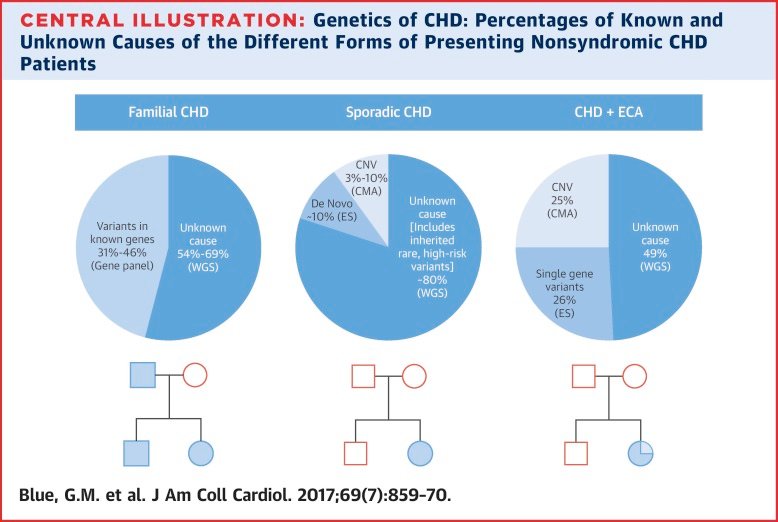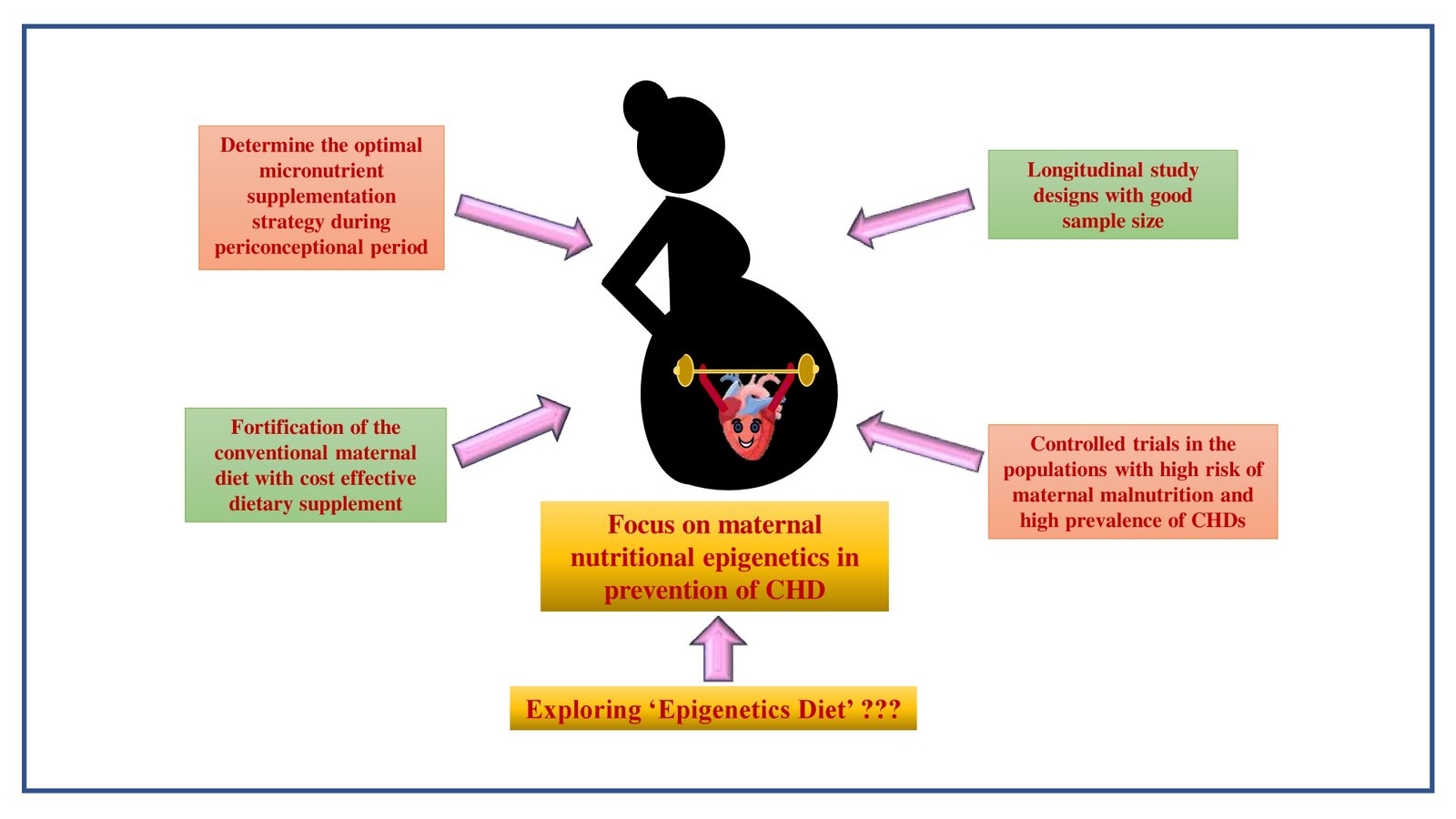Genetics
Genetic variations contributing to the development of CHD have been explored extensively and present from complex polygenic to simple monogenic high-impact models. The genetic mutations responsible for CHD can be sporadic or familial. Chromosomal abnormalities also contribute to significant cases of CHD and these are mostly syndromic forms including numeric or structural chromosomal aberrations. The genetics of CHD is heterogenous and has been explored for decades and is now developing swiftly with advances in the genetic technologies. The role of genetic factors in CHD development was conceptualized with the finding of recurrence of the disease in families.
Familial CHDs can present as autosomal recessive, autosomal dominant, or X-linked traits, with the latter 2 mostly attributed to de novo mutations. More challenging in this type of research is the occurrence of various anatomic forms of CHD in different members of the family, making the interpretation even more complex. Progress in research in the past few years has uncovered evidence that many genes are responsible for inherited and sporadic CHD (Joshi et al. 2020). At SSSSRF, we are engaged in unravelling the genetic basis primarily of nonsyndromic CHD.

Epigenetics
Heart is the first organ to develop during embryogenesis. Towards this development, there is coordinated and precise expression of several genes. There are several morphogens, transcription factors, epigenetic regulators and cardiac genes into complex regulatory network during early heart development. Epigenetic errors can lead to abnormal cardiac development during fetal life leading to CHD. At SSSSRF, we are focusing on DNA methylation alterations in CHD which are susceptible to modifiable environmental factors like nutrition. Our proof-of-concept study reported down regulation of DNMT3B and DNMT3A in CHD cases.
.jpg)
Maternal and child health
You are what your mother had eaten when you were in the womb! Mother’s health and periconceptional nutrition shape the lifetime of the offspring. The dynamic environmental factors have epigenetic route to manifest the phenotype. Amongst these environmental changes, diet is the primary concern. One of the most important epigenetic phenomena- DNA methylation is nutrition dependent to lot extent and hence any adverse changes in maternal nutrition during conception lead to structural malformations in growing embryo. Hence, amongst the modifiable environmental factors, if maternal diet can be positively altered, there transgenerational favorable impact. We at SSSSRF, are working on maternal nutrition and its role in CHD. There is integrated approach to this problem is through study of metabolic pathways, study of metabolic markers and resultant impact at molecular level.

